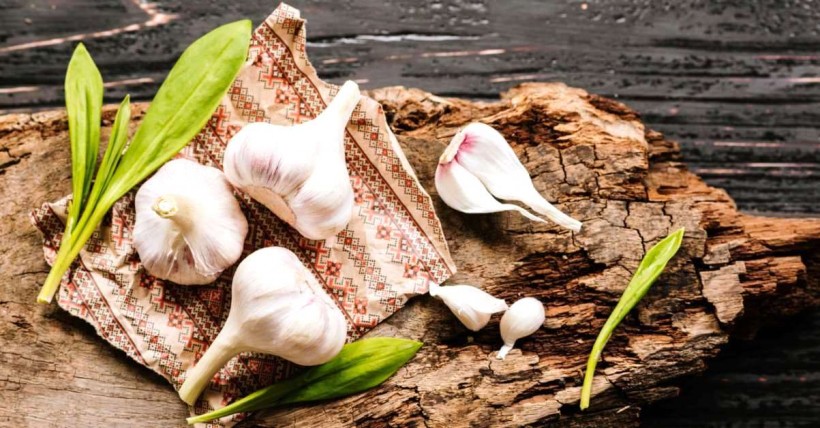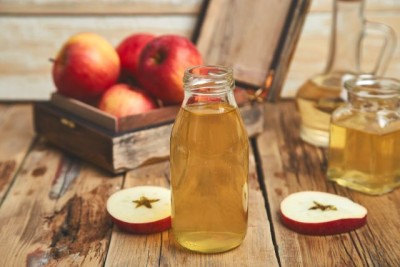10 Most Powerful Natural Antibiotics
Warning: Undefined variable $post in /home/dietofli/public_html/wp-content/plugins/code-snippets/php/snippet-ops.php(584) : eval()'d code on line 3
Warning: Attempt to read property "ID" on null in /home/dietofli/public_html/wp-content/plugins/code-snippets/php/snippet-ops.php(584) : eval()'d code on line 3
The estimated reading time is 13 minutes
Warning: Undefined variable $post in /home/dietofli/public_html/wp-content/plugins/oxygen/component-framework/components/classes/code-block.class.php(115) : eval()'d code on line 3
Warning: Attempt to read property "ID" on null in /home/dietofli/public_html/wp-content/plugins/oxygen/component-framework/components/classes/code-block.class.php(115) : eval()'d code on line 3

As we become so dependent on antibiotic pills, the bacteria become even more resistant and even produce and evolve on a larger scale. As these medicines were invented and started to be used in the 1940s (20 century), our ancestors used to use natural antibiotics to fight any fungus, bacteria, or viruses that can be a safe and natural replacement to antibiotic pills and are still used today by some holistic doctors. According to WHO, drug-resistant bacteria is the biggest threat to humanity nowadays.
So, why do not you try some natural elixirs that are gaining popularity these days as the whole world is going green? You probably know some plants have antimicrobial properties and have heard that garlic can replace penicillin? So, let's see which powerful plants and foods can boost your immunity and give that support when you feel sick?
What Is A Natural Antibiotic?
Natural antibiotics are natural substances with antimicrobial properties and can be used as a natural substitute for drugs (usually antibiotic pills). They can easily become part of your everyday diet and you should use them more often to stay safe from all the bacterial infections and reduce the intake of antibiotic pills. Still, it is advisable to consult your doctor if you use them and you try to substitute any prescribed treatment.
Natural Antibiotic Foods
Garlic
Stubborn bacteria can be treated with garlic as it can defeat some of its key components and can also destroy the biofilm, the protective shield of the bacteria confirms one study from Copenhagen (1). Garlic contains a compound called alliin. When chopped or crushed, it forms another substance called allicin, which is supposed to have powerful antibacterial properties and other health benefits and gives it a strong smell. (2)
The NCCIH states that there isn't sufficient evidence to show whether garlic can treat the common cold. In addition, another research has shown mixed results relating to benefits in lowering cholesterol levels in patients.
Garlic may also help treat these issues:
- Chronic bronchitis
- Chronic mucus in your nose and throat
- Sore throat
- Sinus problems
- Recurrent colds and respiratory infections
- Chronic earaches
- Flu
- Yeast infections
It has a strong taste and causes bad ingestion in some people and when taken in large quantities, may cause ulcers or anemia. In addition, it sometimes can interfere with some medications ( saquinavir, a medicine used to treat HIV) and if you use this medicine, you should speak with your doctor before eating garlic.
It is recommended to be eaten raw and it is believed to be a natural penicillin.
Garlic - Homemade Antibiotic
How To Prepare The Antibiotic?
- Take 2 cloves of garlic that equal one dose of penicillin
- Cut off the ends
- Crush it with an onion tool or with the flat side of the knife
- Press it
- Leave it for about 10 minutes
You can use it raw or mix it with honey, coconut oil, or whatever suits you best.
Onion
There is a general opinion that if you place an onion in a room, it will absorb all the viruses and bacteria and it will improve the health of someone who is sick. It is true that they have excellent absorbing properties and feature a variety of sulfur compounds that have antibacterial activity and boost zinc absorption from other food.
It is packed with vitamin C, essential for the immune system, B vitamins, potassium and is rich in antioxidants. (3). It is also beneficial in:
- boosting bone density (4)
- controlling blood sugar (5)
- prevents the growth of Vibrio cholerae, a bacteria that raises a lot of concerns in the medical world nowadays (6)
How can you use it more often?
Add thinly sliced red onions to your salad make a vegetable onion soup. Mix it with other vegetable dishes.
Turmeric
Due to its compound curcumin, turmeric has antibacterial and anti-inflammatory properties that can prevent the damage of the free radicals in your body. Turmeric is very praised as a pain reliever as well ( for patients suffering from osteoarthritis and joint pain). (7)
When combined with honey is a real energetic bomb for your organism and can boost your immunity in a second. It is a pure natural antibiotic for treating infections. And it doesn't have side effects like antibiotic pills that can cause some intestinal problems and change your intestinal flora.
Note: this remedy cannot substitute prescribed medications and you should speak with your doctor if you want to take it as a natural antibiotic.
You can do by yourself this natural purifying homemade antibiotic to help you with flu, cold, and that annoying cough.
Turmeric And Honey - Natural Antibacterial Antibiotic
How to prepare it?
- 40 g of turmeric powder
- 3 tablespoons of honey
- a pinch of ground black pepper
Mix them well to get a smooth mixture and make small balls out of it. Place them on a baking sheet and cover them with parchment paper. Freeze it for two hours before the consummation.
Manuka Honey
Honey has been documented as one of the first antimicrobial cures and as a wound healer due to hydrogen peroxide production. (8)
Thus, it can be used against any pain and inflammation. In July 2010, FASEB Journal explains for the first time how honey kills bacteria.
The bees make a special protein defensin-1, that they add to the honey. Scientists believe that one day it can be used for the treatment of skin infections, and for the development of new drugs that can fight antibiotic-resistant infections. (9)
Manuka honey is made from the nectar of manuka trees (Leptospermum scoparium) found in Australia and New Zealand, and it has an additional component to its potent antimicrobial activity that differs it from other types of honey. It has a higher level of enzymes (referred to as the Unique Manuka Factor (UMF) that makes him unique. (10)
Manuka honey can kill Staphylococcus and Streptococcus bacteria (that cause golden staph infections and strep throat). Still, different Manuka honey has different antibacterial properties and in some of them, antibacterial content is not that high.
One study confirms that Manuka honey can prevent various drug-resistant pathogens effectively, it has a large spectrum of antibacterial capabilities, unlike most antimicrobial agents. Moreover, few studies have shown that Manuka honey can kill bacteria that are living in biofilms. This means Manuka honey can be used to prevent the growth of bacteria in wounds, implanted devices and mucosal surfaces. (11)
Notes: You should be careful when using honey if you have diabetes as it is high in sugar. It should not be given to children under 1 year of age and be extra careful if you are allergic to pollen.
Manuka Honey Natural Antibiotic Recipe
We offer you a recipe to prevent any illness and to boost your immunity in a second:
You need:
- 2 ½ inch piece of grated fresh ginger
- 1 lemon
- 1/4 teaspoon turmeric
- 1 tablespoon of Manuka Honey
- 1 orange
- 1 tbsp organic apple cider vinegar
- ½ cup warm water
Mix all the ingredients and enjoy this healthy drink. You can drink it on daily basis to fight all the bacteria and viruses that live everywhere around you and are constantly mutating.
Echinacea
It was used by Native Americans and traditional healers for treating infections and wounds. It is one of the most powerful natural antibiotics and is an excellent choice in fighting viruses and boosting your immune system.
Echinacea ( purple cone-flower - E. angustifolia, E. purpurea, E. pallida ) is a lovely pink flower that is related to sunflowers, daisies, and ragweed. Its leaf, root, and flower are used in medicine to activate the chemicals in the body that decrease inflammation.
One of the most common uses is to treat the cold and flu and one study confirms that Echinacea kills bacteria, including Streptococcus pyogenes (S. pyogenes). (12)
It might also help with inflammation as it has antibacterial properties.
Echinacea Tea
This tea is a different herbal drink from traditional teas and is usually made from the dried purple flower of E. angustifolia and E. pallida (Echinacea varieties). It is decaffeinated and you do not get the energy that you usually feel after drinking the black tea. You can drink it for a week, several times per day when the first signs of flu or cold appear to cut the duration of the illness.
If you do not like its strong taste, you can consume it in form of tablets or tinctures, or capsules that you can buy at the local drug store.
It is safe for most people, although some might have side effects such as headache, stomach pain, nausea, or dizziness. Some severe allergic reactions may occur but are very rare, especially if you are allergic to ragweed, marigolds, or daisies.
If you are pregnant, nursing, or have an allergy or asthma you shouldn't use echinacea.
Preparation Of Echinacea Tea
Pour boiled water in a teacup where you have already put some echinacea plant and let it soak for around 15 minutes. Strain, flavor, and enjoy this strong tea that can immediately boost your immunity and fight bacteria and viruses!
Oregano Oil
For centuries, oregano (Origanum vulgare) has been used as a spice and flavoring agent in the kitchen. The key components associated with antimicrobial activities in oregano were proved to be carvacrol and thymol. (13)
You can use oregano oil, which is a food supplement as a natural antibiotic, but always diluted in distilled water or another carrier oil ( coconut or olive oil, for example).
It's available in supplement form, soft gel capsule as a pill where the oregano oil is diluted as it is very strong. If you want to dilute it by yourself, the most common recipe is adding 5 to 6 drops for every ounce of carrier oil.
One study confirmed that oregano oil is effective against many bacteria, including Escherichia coli (E. coli). (14)
You are allowed only 1 to 2 drops per day and use the therapeutic grade oil to reap all its benefits. Talk to your doctor if you take any medications for possible interactions with oregano oil. You can take the oregano oil for a period of 2 weeks only.
Note: speak and visit a certified aromatherapist if you want to take it orally. It can be consumed in a vapor form as well and inhaled.
Ginger
Ginger has almost the same benefits as turmeric. In addition, it has many anti-inflammatory, antibacterial and antifungal properties.
It is great for:
If you are pregnant, you should be careful with ginger and use only 1 gr daily. On the other hand, it might help you with your nausea and morning sickness.
High doses of ginger -- more than 5 grams a day -- increase the chances of side effects and can cause heartburn, gas, and upset your stomach.
Many people use ginger to help recover from a cold or the flu. (17)
Apple-Cider Vinegar
Apple cider vinegar has some antibiotic properties as it contains acetic acid (18). Apple cider vinegar has been known for centuries as a great cleaning agent as well.
It has been a folk remedy used for the treatment of nail fungus, ear infections, and some skin infections and burns.
It has shown great results in killing Pseudomonas aeruginosa, a common bacterium found in chronic wounds. (19)
Horseradish
The allyl isothiocyanate, an active component in horseradish kills all microorganisms and bacteria, as it was confirmed in some recent studies.
Horseradish is a root vegetable and is rich in many vitamins and minerals such as:
- Calcium
- Dietary fiber
- Vitamin C
- Manganese
- Potassium
- Folate
- Magnesium
- Potassium
- Zinc
It can clear the sinuses and all the accumulated mucus very effectively. Its components called isothiocyanates can help you lose weight and improve your digestion.
Horseradish has been used as a medicine for thousands of years. It is beneficial in many ways, and some studies were conducted to support these claims.
The horseradish can:
- Prevent cancer (20)
- Boost your immune system
- Helps with urinary tract infections
- Treat sinus infections
- Improve your teeth
- Relieve pain and inflammation
- Regulate your blood pressure
- Aid indigestion
Note: You should be very careful when consuming horseradish when pregnant as it may lead to miscarriage if taken in high doses. It should not be given to children and people with digestive disorders as it may irritate their digestive system.
Chilly Peppers
Human use of chili peppers dates back to prehistoric times. They are known for their strong flavor and are primarily used as a spice. They have that strong flavor and are healthy as they contain Capsaicin, a chemical ingredient that fights fungi and bacteria effectively. The red color indicates that is rich in vitamin A, known as beta–carotene, which is essential for the health of the respiratory, intestinal, and urinary systems. Vitamin C is on the other hand a key ingredient for strengthening immunity and fighting all infections and viruses.
Nevertheless, they do not greatly impact your immunity as you can eat just a few per day.
They are believed to be beneficial for:
- Pain relief
- Weight loss (21)
- Treating fungal infections, cold, and flu
- Supports Cardiovascular Health (rich in potassium, which prevents heart disease)
Natural Antibiotic Recipe
To boost your immune system which has a vital function in your body and is a protective shield preventing all outdoor germs to enter it, you need to prepare this natural antibiotic that will help you lead a healthy lifestyle and protect you from harmful diseases.
You need to use some of the powerful superfoods mentioned:
- 3 cups apple cider vinegar.
- 1/4 cup garlic, finely chopped.
- 2 fresh peppers, extra hot and chilly.
- 1/4 cup onion, finely chopped.
- 1/4 cup ginger, grated.
- 2 tbsp. turmeric.
- 3 tbsp. honey.
- 2 tbsp. horseradish, grated.
Preparation:
Mix all the ingredients in a pot, but do not put the cider vinegar. When they are properly mixed, put them in a container and add the apple cider vinegar. Mix them well and seal them.
Keep it in a dry and dark place for 2 weeks, and then strain it. Consume it daily to fight any infections and bacteria. One tablespoon per day is sufficient to help you in fighting germs and bacteria.
Note: This remedy is not safe for small children and pregnant women. You can increase your daily intake if you are sick and feeling unwell.
Conclusion:
Natural antibiotics are natural substances that have antimicrobial properties and can help you fight all the germs attacking your organism and boost your immunity.
The most powerful antibiotic foods are onion, garlic, turmeric, manuka honey, horseradish, chilly peppers, oregano oil, apple vinegar, and echinacea.
You can add all these natural antibiotics on your everyday diet to boost your immunity, but you should take them in moderation and be extra careful if you are pregnant or taking some other medications. Some of them are strong, so they should not be given to small children.














